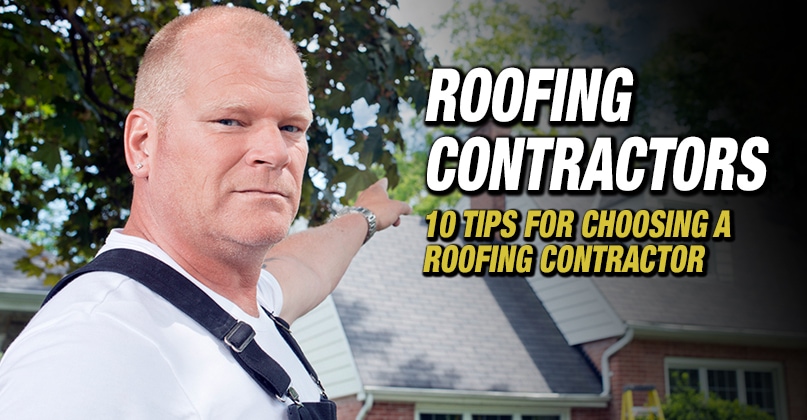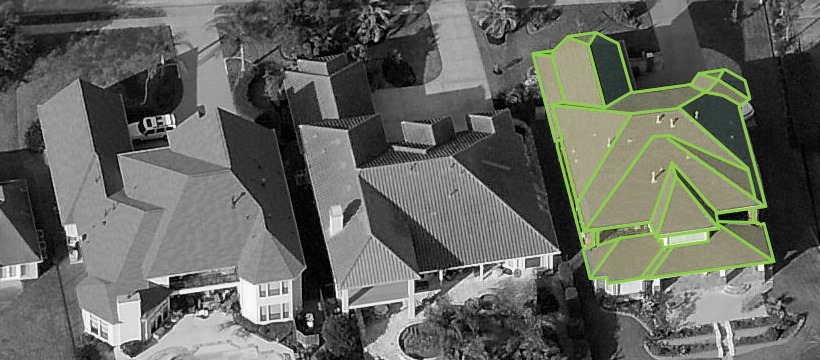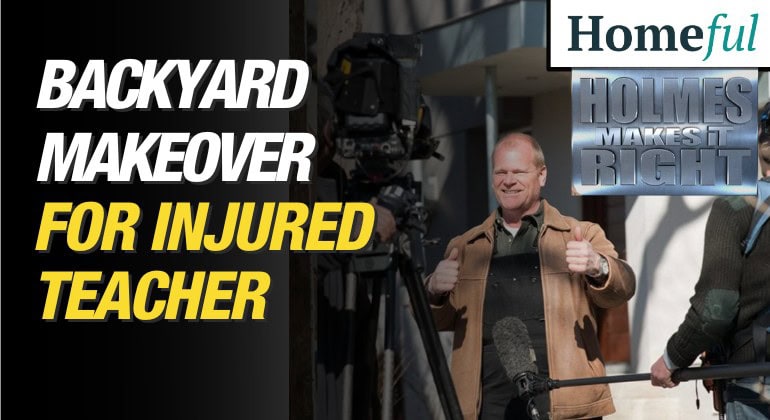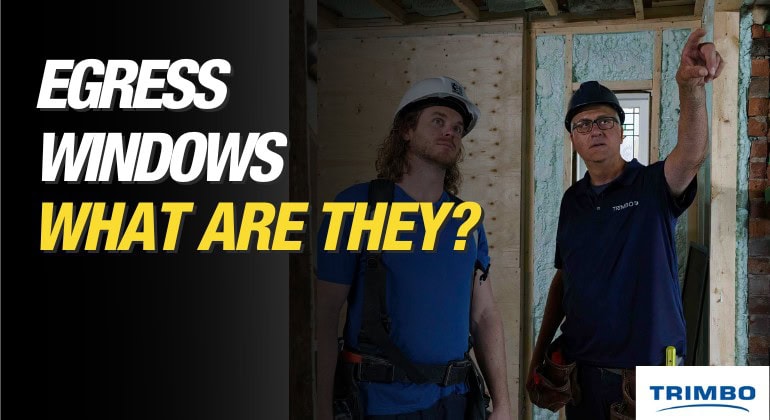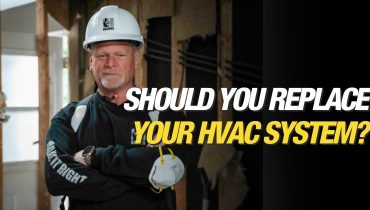I think custom kitchen cabinets are a great investment—but only if you do it right, the first time. Whether you’re renovating your forever home or boosting your home’s resale value,...
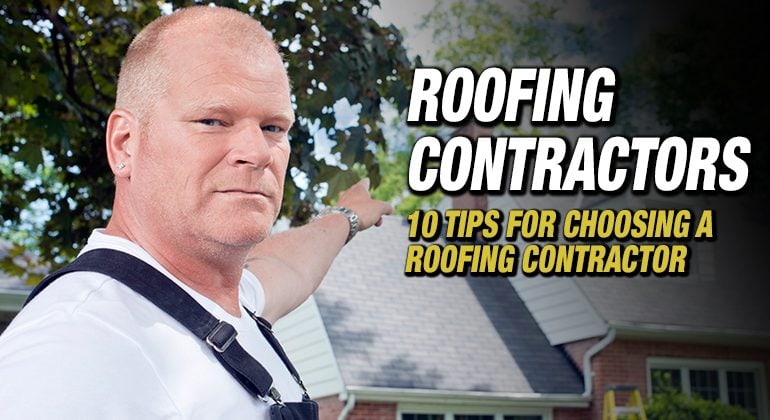
10 TIPS FOR CHOOSING A ROOFING CONTRACTOR
By Mike Holmes
Mike’s Advice / Buying & Selling Your Home
Wednesday, February 3rd, 2021 @ 12:21pm
Hiring a Roofing Contractor
When it comes to your home improvement projects, DO IT RIGHT THE FIRST TIME. Your roof system is an important component of the building envelope. It is your home’s first line of defence against the elements. If the outside of your home is well maintained and properly constructed, then the inside of your home will be protected; this makes sense, right?
Your home’s roofing system is only as good as the installation and the materials used. That’s why it’s important to use good quality products and professional contractors when repairing or installing a new roof. Hiring the right roofing contractor is important!
How do you pick a good roofing contractor?
Do your research on products and techniques, get several estimates, and interview multiple roofing contractors if its time to have your roof replaced.
Research and obtain the services, fees and warranties provided by several different roofing contractors before making the final hiring decision. If possible, you can even check out a roof install by them. Don’t rush this process.
It’s your home and the roof is an important part of Protecting It Right– you want the job done right, the first time!
Top 10 Tips For Finding The Right Roofing Contractor:
#10. Does Your Roofing Contractor have Proper Training?
Some shingles manufacturers offer specific product training to their installers to ensure proper installation. Ask your potential roofing contractors what training they have been through.
When it comes to the roof for your home, take every step possible to ensure you are hiring the right roofing company. Hiring a roofing contractor is not something that can be done in a couple of hours.
#9. Check For Insurance
Make sure that your contractor has worker’s compensation and liability insurance. Worker’s compensation will provide coverage if a contractor is injured on the job, and general liability insurance protects your home if a contractor damages it while completing work.

Now, not all areas require roofing contractors to have insurance, but you should be looking to hire a roofing company with insurance to protect yourself from lawsuits if the contractor is injured while working on your property.
#8 Ask Your Roofing Contractor About LICENSES
Verify that the roofing contractor or business is legitimate by asking for their tax identification number, a business address, business website or email address, and contact phone number.
In some areas, there is no requirement for roofing contractors to have licenses. Even if that is true in your area, I still recommend picking a contractor who has one anyway.
A license means the roofer is serious about their work and is up-to-date on all the requirements to perform their job properly.
Asking about licensing and insurance should absolutely be a step in finding a roofing contractor.
RELATED: My Mike Holmes Inspectors use EagleView technology for roof inspections. It allows them to deliver a consistent, higher quality and efficient roof inspection every time. This AI-powered drone technology accurately identifies hail, wind and other types of damage from the safety of the ground.
#7. GET IT IN WRITING
A written contract protects you as the homeowner. If a contractor doesn’t want to provide a formal contract, time for you to find someone else.
The formal contract should clearly outline payment schedules, roofing materials used (brand, type, and color), and a list of subcontractors.
Having a list of the materials being used is really important. Plus a start and end date and details about removing the old roof and inspection of the existing roof, repair or replacement.
The contract should also include details on how the gardens and landscaping will be protected, who is responsible for the cleanup, and any damages to property or your neighbor’s that may occur during the work.
RELATED
#6. NO CASH DEALS
I don’t ever encourage cash deals but they still do happen – please remember the risk you are taking, no paper trail, no guarantees – nothing! In the event of an issue or a dispute, documentation always wins.
Stay away from a contractor who insists on cash payments. Cash is not traceable.
RELATED
#5. TALK ABOUT PERMITS
In most areas as a homeowner, it’s your responsibility to ensure the proper permits are pulled for your job. If a contractor recommends skipping permits to “save a few bucks,” move on to the next contractor on your list.
I always encourage homeowners to talk to their local building authority to make sure they are covered. A building permit is required in most regions for all reroofing except for repairs totaling less than 100 square feet but always confirm with your local building authority.
RELATED
#4. EDUCATE YOURSELF
Take the time to understand what is being done to your roof. Is it just minor repairs or do you have structural or moisture damage from a recent storm? Understanding the job scope allows you to monitor the contractor’s work and ensure they are doing things the right way.
Also, think about safety. Remember, the contractor will have his own liability insurance (you need to confirm this) however, the team is on your property so make sure you have the necessary insurance to ensure you are covered for any accidents that may occur.
Safety first! I see so many roofing contractors not wearing the proper fall arrest protection or if they do have the proper protection on, they are not hooked into an anchor point. This is a secure point usually on the roof where the harness line is securely anchored to prevent serious injury if a fall occurs.
Fall arrest protection is required by law for any height 10 feet above the ground and employers must provide all employees with OSHA approved equipment. As of April 2017, all roofing contractors must have a working at heights training card, which proves they’ve been trained to work safely at heights.
No matter what region you reside in make sure you abide by the by-laws.
RELATED
#3. VET YOUR POTENTIAL ROOFING CONTRACTOR
If you think you have a good contractor lined up, ask them for references from previous clients. I like to ask for at least 10 references. More importantly, call those references and if you can, go and see the work they have performed and completed!
If the contractor refuses to provide references don’t hire them. You want to hear directly from them what it was like to work with this contractor. Did they complete the job properly? Were they on time? How did they handle any delays?
Ask the contractor about insurance and liability and worker compensation too. You can also search on the Consumer Beware List and the Better Business Bureau for any alerts, complaints, or charges.
RELATED
#2. BE PATIENT. TAKE YOUR TIME.
Finding the right contractor can take a long time. Do your research, ask for recommendations, and look at online reviews, contact as many potential contractors as possible to see who’s out there and available.
You will want to work with an experienced roofing company offering high quality shingles.
#1. WHAT ABOUT PRICE?
When it comes to your roof, your decision should not be based on price alone. A professional roofer who has proper insurance will need to recover their costs through their roofing jobs. If you are getting a great deal with a contractor who can show up on the job site tomorrow, it probably means it’s too good to be true.
To me, that spells trouble and puts up “red flags” in my books. Replacing your roof is a big-ticket item – it’s not cheap. Take your time finding a roofing company, and don’t cheap out on your home.
READ NEXT:
The Ultimate Guide to Choosing the Best Roofing Shingles: Atlas Roofing Pinnacle® Shingles Review
9 Signs You Have Hired a Bad Contractor
